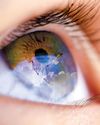CATEGORIES
Categorías

MacBook Air
THE POWER OF THE M4 CHIP MEETS ULTRA-PORTABILITY

IROBOT LAUNCHES EIGHT NEW ROOMBAS WITH LIDAR MAPPING
This week, iRobot unveiled its most ambitious lineup yet, introducing eight new Roomba models that bring lidar mapping to the brand for the first time.

3D PRINTING SPEEDS WILDFIRE RECOVERY: HOMES FROM THE ASHES
Azure Printed Homes is turning tragedy into triumph, using 3D printing to rebuild LA homes lost to wildfires. This tech slashes recovery time from years to days, offering displaced tech users a fast, affordable lifeline. It's not a gimmick—it's a roof over your head, built smarter.

APPLE VISION PRO ROCKS WITH METALLICA: AN IMMERSIVE CONCERT EXPERIENCE UNLEASHED
Apple has rolled out a groundbreaking addition to its Vision Pro lineup, unveiling an immersive concert experience featuring Metallica that promises to redefine how fans experience live music.

META'S NEW PLAY: CROWD-SOURCED FACT-CHECKING COMES TO FACEBOOK AND INSTAGRAM
Meta Platforms Inc., the powerhouse behind Facebook and Instagram, is set to launch a bold experiment in battling misinformation with its crowd-sourced fact-checking program, Community Notes, starting March 18, 2025.

FSR 4 SET TO ELEVATE PS5 PRO GRAPHICS IN 2026: A CLEARER PICTURE AHEAD
PlayStation's lead architect Mark Cerny dropped a tantalizing hint about the PS5 Pro's future, revealing that AMD's new FSR 4 upscaling technology will shape the \"next evolution\" of the console's PlayStation Spectral Super Resolution (PSSR).

STARSHIP FLIGHT 8: A STEP FORWARD, A STUMBLE UPWARD, AND THE ROAD TO REUSABILITY
SpaceX's eighth Starship flight test, dubbed Flight 8, soared into the skies above South Texas, delivering a mix of triumph and turbulence that underscores the company's relentless push toward a reusable future.

GROK AND XAI'S AI INFRASTRUCTURE: ELON MUSK'S SUPERCHARGED BRAIN TRUST
Elon Musk's xAl is making waves this week with Grok, a super-smart AI powered by a massive computer setup that's hard to wrap your head around.

IOS 19 RUMORED TO BE ONE OF APPLE'S BIGGEST IPHONE UPDATES EVER
This week, whispers about iOS 19 are stirring excitement among iPhone users, with Bloomberg reporting it could be one of the most transformative updates in Apple's history.

AI-POWERED FARMING TOOLS GAIN TRACTION: FEEDING THE FUTURE
California's Farm-ng is sowing a quiet revolution, using AI and robotics to transform farming. Announced this week, via CBS News, these tools tackle seeding and harvesting with precision, promising US tech users fresher food and lower prices. It's not futuristic hype-it's tech that's already working the fields.

WAYMO'S CHINESE-MADE EVS CLEARED FOR US DELIVERY: A ROBOTAXI REVOLUTION BEGINS
Waymo's latest move is a game-changer: Chinese-made Zeekr electric vehicles (EVs) are set to hit US streets by late 2025, dodging tariffs and bringing autonomous rides closer to reality.

WASTING TOO MUCH TIME ON SOCIAL MEDIA APPS? TIPS AND TRICKS TO CURB SMARTPHONE USE
Smartphones have woven themselves into daily life, offering instant connection and endless scrolls through apps like X, Instagram, and TikTok.

SPORTS STREAMING SCORES BIG: APPLE TV+ AND MORE BRING THE GAME HOME
Sports are roaring back to television screens, and streaming services are leading the charge, blending live action with on-demand convenience. Platforms like Apple TV+, Paramount+, ESPN+, Hulu, and Peacock have tapped into the fervor, delivering key moments from ice rinks to gridirons.

TIKTOK DEAL IS IN THE WORKS: HERE'S WHERE THINGS STAND WITH THE COMPANY
TikTok's future in the United States hangs in a delicate balance as negotiations swirl around a potential sale of its operations, a saga blending tech innovation, geopolitical tension, and corporate ambition.

GEMINI GETS PERSONAL: TAILORED HELP FROM YOUR GOOGLE APPS
Google’s AI assistant, Gemini, is stepping up its game with a fresh twist—personalization that taps into your everyday digital life.

Make Democrats Funny Again
The party has defined itself entirely in opposition to Donald Trump and forgotten that people vote for the person they'd rather grab a beer with

Windward Roads Infrastructure: Paving Sint Maarten's Future with Innovation & Resilience
Building Resilience and Innovation in Caribbean Infrastructure

A Mammoth Breakthrough
A biotech team has created a “woolly mouse,” marking a step forward in the quest to revive the long-extinct species

How Trump's cuts are hurting his voters
CLARKSBURG, W.VA., HAS LEAD PIPES SCATTERED THROUGH- out the city, which has caused elevated levels of lead in some children’s blood, resulting in health issues like developmental delays.

What are abortion shield laws?
In the aftermath of the U.S. Supreme Court decision overturning Roe v. Wade in 2022, many states have moved to protect the right to abortion, and several have turned to a new tool to do so: abortion shield laws.

Michelle Trachtenberg
When Michelle Trachtenberg suddenly appeared among the already-familiar cast members of Joss Whedon’s much loved turn-of-the-21st-century TV show Buffy the Vampire Slayer, at the start of Season 5, no one knew what to make of her.

SINT MAARTEN/SAINT-MARTIN: Bridging Regions for Growth and Prosperity
Nicknamed “The Friendly Island,” Sint Maarten and Saint-Martin are forging new pathways for growth by strengthening economic and tourism ties with the United States.

Sint Maarten: Where Maritime Innovation Meets Caribbean Charm
A Leader in Sustainability and Connectivity.

Flowone Leads in Bellows Seal Valves
Flowone is looking to international markets to continue its expansion, bringing advanced valves and precision engineering at remarkably competitive prices.

From Shadows to Sight
A revolutionary gene therapy has given blind children with a rare eye disorder the ability to see

Ultra-Precision Manufacturing for Tomorrow's Batteries
When it comes to batteries, HYTC have emerged as the first-choice battery manufacturing partner in everything from personal electronics to electric vehicles.

Industrial Hoses: Blood Vessels of Industry
KOMAN is helping craft the bodies of technology and machinery powering the industrial future with its hydraulic and industrial hoses.

Functional Pigments: Beyond Aesthetics.
CQV are bringing a new generation of pearlescent pigments, effect pigments and functional pigments to enable sustainable design and next generation technologies. By Daniel de Bomford

War of Words
JD Vance took Europe by surprise when he deemed a \"retreat\" of free speech one of the biggest threats to the continent. Newsweek explores freedom of expression there and in the U.S.

The World's Greatest Places
OUR ANNUAL LIST OF THE MOST INTERESTING DESTINATIONS AROUND THE GLOBE TAKES YOU FROM THE SOUTH PACIFIC TO NORTHERN GREENLAND-AND EVEN TO A NINTENDO MUSEUM IN BETWEEN. FIND THE REST OF OUR TOP 100 PLACES TO STAY AND TO VISIT AT TIME.COM/WORLDS GREATESTPLACES